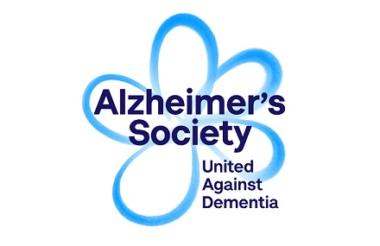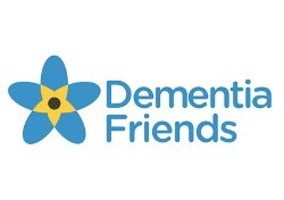Some 40 per cent of workers at the Alzheimer’s Society feel that the charity's leadership is “out of touch”, according to results of a staff survey seen by Civil Society News.
The charity said it is putting in place an “action plan” to make improvements.
Three-quarters of the charity's 2,211 staff responded to the survey, which was carried out by an independent agency and which benchmarked the organisation against other charities. The survey was carried out this summer, and results were shared with staff this month.
Overall, the charity’s “Workplace Engagement Score” fell by 4 percentage points to 56 per cent, which was nine points behind the benchmark median.
Leadership was the lowest scoring topic overall, receiving a score of 38 per cent. The report describes this as “performing poorly”.
While 28 per cent said they thought leadership was “in touch”, this was 4 percentage points down on the previous year and 11 below the benchmark median.
Some 40 per cent said the leadership was not in touch and 32 per cent gave a “neutral” response. Just 44 per cent believed that the the results of the survey would be acted upon.
However, on management questions the charity scored well. 84 per cent of respondents said that their manager seeks their input and includes them where appropriate.
The findings of the survey have been discussed at board level and views from employees and volunteers will be presented to senior leaders next week.
‘We are doing our utmost to take action to address these points’
Alzheimer’s Society told Civil Society News that it is taking steps to address areas which need improvement, but that there were also some positive findings from the survey.
Corinne Mills, director of people and organisational development, said: “We value and respect the views of all our employees and volunteers. Every year, we invite feedback from our employees and volunteers through confidential engagement surveys which are carried out on our behalf by an external agency.
“There are many ways in which our employees and volunteers can have their voices heard throughout the year, but the surveys give us an unique opportunity to hear from as many people as possible. This year, we heard from 75 per cent of our employees and 21 per cent of our volunteers.
“We use the results of the surveys as a starting point in understanding where we’re doing well and where we can do better. These results include 91 per cent of our people being proud to work or volunteer at Alzheimer’s Society, 97 per cent of employees saying colleagues ‘demonstrate our values and behaviours’, and 86 per cent ‘see colleagues around me living our values and behaviours’, with behaviours including ‘respect’.
“However, we do need to focus on areas of improvement, and this includes 40 per cent of employees feeling our senior leadership are not in touch, with 32 per cent feeling neutral, and 28 per cent feeling they are in touch. We are doing our utmost to take action to address these points since we shared the results of this year’s survey with all our people two weeks ago, and this includes: discussing with our board, with our people committee which includes independent members, and discussing with our employee forum and volunteer advisory panel. Their views are being presented to our senior leadership team this week to discuss in detail.
“We have identified areas for improvement and we are putting in place action plans to do so. We are accountable for delivering these plans and will be involving all our people so we can build an even better culture and Society to deliver support to people affected by dementia.”
Online criticism
The charity’s leadership has also faced criticism from an anonymous Twitter account over the past week, which has been calling on people to come forward with their experiences at the charity.
The staff survey found 6 per cent had experienced discrimination, bullying or harassment. 58 per cent of respondents said that they were confident the charity take allegations seriously. 35 per cent gave a neutral response and 7 per cent gave a negative response to this question.
The Alzheimer’s Society says it has been trying to reach out to those involved. The Twitter account shared an email from Mills which invited them to report any issues through official channels and to close the account because it was in breach of the social media policy and confidentiality.
Mills told Civil Society News: “Alzheimer’s Society takes any allegations or complaints very seriously and has a zero tolerance of bullying and discrimination. We believe we have a robust internal complaints procedure and whistle-blowing policy - all complaints are thoroughly investigated to support and protect our employees and volunteers who raise concerns. There is open access to the chair via our whistle blowing policy, independent of the CEO or any leadership team member.
“We will continue to do everything we can to ensure all employees are aware of all channels available to them to raise issues or concerns, and they are encouraged to do so. I have personally contacted the anonymous Twitter account and encouraged them to talk to me, in confidence, about their concerns or to raise them through any of a number of other appropriate channels so we can address them properly.”
Chief executive standing down next year
Yesterday the charity announced that its chief executive, Jeremy Hughes, plans to hand over the reins next year and that it has begun the recruitment process for his successor.
A spokesperson emphasised that the announcement was not connected to any of the Twitter allegations and had “been planned for some time”.
Hughes has been chief executive for ten years. He is also vice chair of the world Dementia Council and a member of the NHS Assembly.
He was awarded a CBE in the Queen’s Birthday Honours list in 2015.
Stephen Hill, chairman of trustees, said: “Jeremy has been a remarkable leader of Alzheimer’s Society and supporter of the wider dementia cause. After ten years in the role I respect his desire to hand over the reins and the board of trustees is determined to find a worthy successor to continue the amazing progress the Society has made under his leadership.
“His influence for the cause, both national and internationally, has been exceptional and he has been a driving force in ensuring that the rights of people with dementia cannot be ignored. I’d like to thank him for his fantastic contributions and hope Alzheimer’s Society will benefit from his continued involvement in the dementia cause over the years to come.”
|
Related articles











